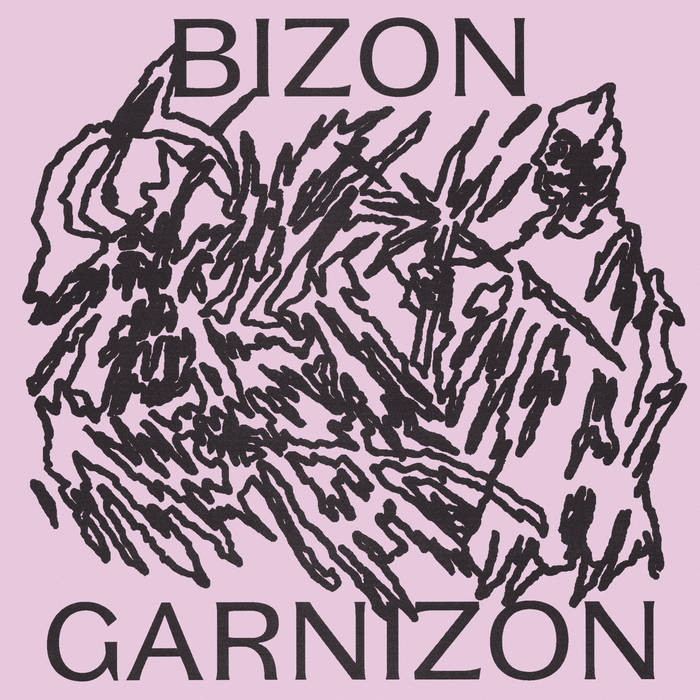The album opens with Uvod (Tema Iz Filma ‘Walter brani Sarajevo’) (“Introduction (Theme from the Film ‘Walter Defends Sarajevo’)”), a dramatic, slightly tongue-in-cheek nod to the cult Partisan movie. The title Das Ist Walter is lifted straight from the film’s final line — a bit of regional mythology that sets the surreal, self-aware tone for everything that follows.
Then the band explodes into Anarhija All Over Baščaršija (“Anarchy All Over Baščaršija”), a raw, unfiltered track that lands somewhere between Anarchy in the UK and a late-night Sarajevan bar brawl. Dr Nele Karajlić (real name, Nenad Janković) sings about assaulting a hippie and calls on his fellow New Primitives to rise up and reject the West. It’s crude, fast, and surreal — exactly the kind of cultural collision that defines the New Primitivism sub-culture. If that movement interests you, definitely look into Elvis J. Kurtović & His Meteors, another Sarajevo band from the same scene.
The satire sharpens on Abid, where synths and warm saxophone bursts weave around one of the most expressive vocal performances. Catchy and full of flair, it also points a finger at the shady dealings behind the 1984 Sarajevo Winter Olympics — a celebration tinged with political gamesmanship and backroom contracts.
Put U Središte Rudnika Kreka Banovići (“The Road to the Centre of the Kreka Banovići Mine”) slams in without pause, all driving punk guitars and punchy vocals. The lyrics reportedly reference the 1982 methane explosion at the Raspotocje coal mine, where 39 miners died — though the band swaps in the name of a different Bosnian mine, perhaps to blur direct references. It’s one of the darker moments on the album, especially when viewed alongside more recent mining tragedies. For more on that connection, I recommend Miljenko Jergović’s excellent essay, “Bosnian jihadists are close to you, but the miners are so far away.” It’s powerful and places the song in a broader political and cultural context.
By this point, it’s clear that Das Ist Walter is overflowing with hyper-local references — place names, slang, inside jokes, historical nods — making it both rich and challenging for non-local listeners. But that’s part of its brilliance. The deeper you dig, the more it reveals. This isn’t just music — it’s Sarajevo itself, captured in a strange, satirical mirror.
Selena, Vrati Se, Selena (“Selena, Come Back, Selena”) brings more of that garage rock energy and local humour. A girl leaves her guy — maybe for America, maybe Ecuador — and the track flirts with heartbreak, irony, and absurdism. Then comes Neću da budem Švabo u dotiranom filmu (“I Don’t Want to Be a Kraut in a Subsidised Film”), continuing the album’s gleeful descent into absurdity.
Kino Prvi Maj (“First of May Cinema”) leans into new wave, with a bass-line full of tension and a bizarre spoken-word finale about James Bond and a spy named Mr. Greek. It’s ridiculous in the best possible way — Cold War paranoia reimagined as local theatre.
Seki Is On The Road Again stands out as one of the most nostalgic and warm tracks. If you’ve watched the excellent TV series Crno-Bijeli Svijet (“Black & White World“), you’ve probably heard it. The track follows a taxi driver navigating Olympic-era Sarajevo — simple, joyful, and endlessly replayable.
Pamtim To Kao Da Je Bilo Danas (“I Remember It Like It Was Today”) shifts toward folk and storytelling, with Karajlić recounting a grandfather’s wisdom: ignore tactics, aim for heaven, and you’ll end up playing in Vratnik. Vratnik is a Sarajevo neighbourhood that, for those outside Bosnia, might be equal parts mystery and punchline — though I’ll admit I don’t know exactly what the joke is.
The band’s most iconic track, Zenica Blues, is a Balkan-tinted prison song in the spirit of Johnny Cash’s San Quentin. A man is jailed for stabbing his wife’s lover — “Zenico, mrzim svaki kamen tvoj” he sings (“Zenica, I hate every stone of you”), echoing Cash’s famous line. It’s violent, tragic, and hilarious all at once — satire dressed up as a folk sing-along.
The album closes with Čejeni Odlaze (“The Cheyenne Are Leaving”). It references the retreat of the Cheyenne after the Battle of Little Bighorn. Some interpret it as political allegory — perhaps tied to post-Tito migrations or ethnic tensions — but given the sensitivity and complexity of those topics, I’ll leave that speculation aside.
Das Ist Walter isn’t just a debut album — it’s a time capsule of 1980s Sarajevo, refracted through irony, punk, folklore, and laughter. Often chaotic, sometimes juvenile, occasionally profound, and always unapologetically local, it’s one of those records that asks you to listen not just with your ears, but with a history book and a sense of humour. For those outside the former Yugoslavia, it can be hard to unlock — but once you do, it becomes something unforgettable.


